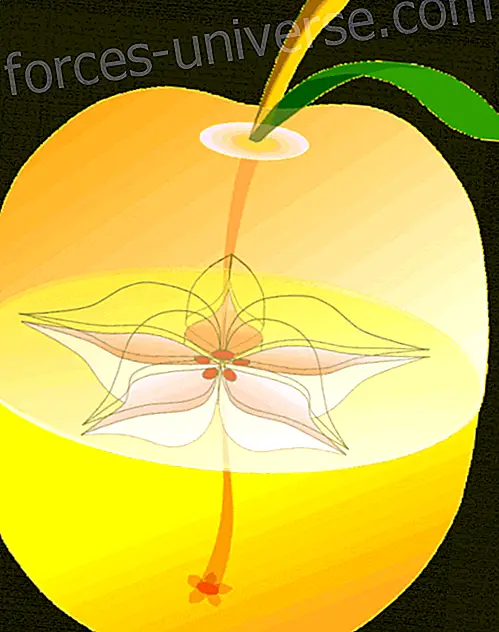
What does hyperactivity have to do with diet? Hyperactivity is characterized by a lack of attention, an impulsive character and excessive energy. These behaviors are closely related to the nervous system, so the diet plays an important role in treating these behaviors.
The nervous system feeds primarily on essential fatty acids which regulate inflammation and nervous irritability. When there is no adequate or balanced diet, the nervous system can become irritated and over stimulated, which influences the nervous and anxious behavior of children.
Foods that you should include in your diet by varying them day by day:
Fish such as tuna, salmon, etc., cold pressed vegetable oils such as olive oil, cod oil, sunflower oil, etc. These types of oils greatly help to reduce inflammation and regulate nervous irritability.
It is also important to include foods rich in salicylates such as nuts, almonds, peanuts, apples, tomatoes, berries, strawberries, all citrus fruits) and whole grains such as corn, wheat, soy, oats, etc.
You should include fresh citrus juices rich in vitamin C as orange juice in your daily diet. Herbal infusions after twenty minutes of eating are helpful to reduce irritability and nervousness in children. Offer them a cup sweetened with some honey after eating or before bedtime.
The recommended herbs are: lemon balm, peppermint, anise, lavender, chamomile, passionflower, passion flower, nebeda or lime.
Foods you should avoid:
Refined sugar in all its varieties (sodas, cakes, sweets, canned tomatoes, sugary juices, processed, etc.) are one of the most irritating foods for the nervous system. You need to avoid white sugar in your diet as it is one of the main causes of periods of nervous breakdown, stress, impulsivity and anxiety in people. Children are especially affected and generated, in addition, other harmful consequences such as poor calcium absorption, tooth decay, digestive problems, poisoning, etc.
It is true that the body needs sugar (glucose) for its functions, but not refined sugar! The sugar that is needed is the natural sugar that fruits and healthy carbohydrates contain, honey is also a very nutritious sweetener. The problem with the substitution of sugar in children is that the palate becomes accustomed to sugar (since this causes some addiction), so it is often difficult to remove it. However, you can gradually reduce the use to less, so that your palate does not suffer. Do not offer desserts or sweets or to comfort them or desserts, it is better to offer fresh fruits, vegetable salads, bread with honey, etc. This may seem boring for some children (and even parents) but if you really want good nervous system health, especially when there are nervous and hyperactive children, it is necessary to make these changes in a positive mood. In truth the little ones will thank us when they grow up, we will avoid a lot of diseases and conditions.
Diet and menu for hyperactive children:
BREAKFAST:
A glass of orange or grapefruit juice, with the juice of a squeezed lemon. It is recommended to give the juice 15 minutes before the child has breakfast for better assimilation.
A plate of oatmeal with almond milk and a bread with honey, yogurt with some whole grain cereal. Avoid the box cereal of supermarkets that is very refined, so they have to add it with vitamins because their grains have lost them all during processing.
Jams should not be added with so much sugar, but they should not be light either, since light products also affect the health of the body. Jams that are added to 50% less sugar than conventional ones or those added with natural fruit sugar (stevia) are recommended.
LUNH:
At lunch, avoid sending fried or fried or fatty foods. It is best to prepare salads, vegetarian pizza, whole wheat hamburgers with fresh cheese (avoid a lot of salt), etc. Lunch is an important food so it should be as nutritious as possible, avoid junk and refined products. .
FOOD:
At this time it is important that the child does not eat with sugary drinks or fruit or sweet foods, as this will cause fermentation in the stomach that can irritate the nervous system and hinder good digestion. At this time you should offer semi-cooked vegetable soups, rice (preferring the whole grain), vegetable or leguminous croquettes, etc. The important thing is that at this time eat some salad or fresh vegetable juice. An excellent habit is to educate the child to eat with a glass of carrot juice with alfalfa, etc. You may not like the idea at first if you are used to eating with soda or fruit drinks, but if we get used to it, it will be a very positive habit for your future health.
BETWEEN MEALS
Offer the small cereal bars, chopped fruit, fresh fruit juices, etc. Avoid and try to accustom the little ones to sweets or fast food.
DINNER:
Dinner should not be very heavy, and many foods should not be combined at this time, so that the child sleeps much better and his nervous system rests. The best at this time are vegetable milk with a cookie or whole wheat bread. Before going to sleep you can be offered an apple salad with homemade yogurt of choice. An infusion before bed will put you to sleep peacefully.
Other recommendations:
In addition to taking care of the diet of hyperactive children, it is necessary to help them channel their energy into activities such as sports, theater, music, etc. An overactive child needs to stimulate his attention and concentration through guided activities focused on a constructive relief of his energy. Avoid keeping them in one place, not spending much time on video or television games, take them for long walks and have contact with animals and nature.
Source: http://www.biomanantial.com/ni%C3%B1os-hiperactivos-alimentacion-consejos-a-2199.html






